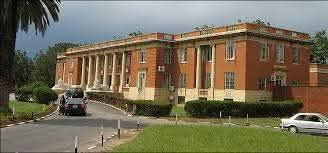THE Constitutional Court has refused to stop the Technical Committee on Amendments to the Constitution from continuing its work, saying there is no proof that allowing the Committee to proceed will cause any immediate or permanent harm.
The ruling was delivered by Justice Maria Kawimbe after hearings held on 21 and 25 November.
Earlier, the Court had also refused to grant an emergency order without hearing both sides.
The Law Association of Zambia (LAZ) and several civil society organisations, including the Non-Governmental Gender Organisations’ Coordinating Council (NGOCC), Evangelical Fellowship of Zambia (EFZ), Zambia Conference of Catholic Bishops (ZCCB) and the Council of Churches in Zambia (CCZ) had asked the Court to suspend all activities of the Technical Committee.
They argued that the Committee was created without any constitutional or statutory authority or gazette legal instrument.
The groups said the Committee had moved too fast, with LAZ president Lungisani Zulu telling the Court that the team had held nationwide consultations in just 12 days and was already writing its report.
He warned that in the absence of an immediate intervention, the Technical Committee will finalise a draft constitutional amendment bill before the Court hears the petition.
Zulu said letting the process continue would cause irreparable harm to constitutional legitimacy and the constitutional order of Zambia including the risk of entrenchment of unconstitutional structures, undermining the sovereignty of the people, loss of public trust and loss of legitimacy in constitutional governance.
The applicants insisted that they were not asking for an injunction, saying the relief they wanted arises from Article 1, 128 and 267(4) of the Constitution and does not fall within the meaning of an injunction under section 16 of the State Proceedings Act.
But the State, through Solicitor General Marshall Muchende told the Court that the petitioners had not met the conditions needed for such an order.
The Technical Committee’s vice-chairperson, Dr Landilani Banda, said the Committee had already received in excess of 11,000 submissions from the public and was finalising its report after finishing its nationwide sittings.
The State argued that the Committee was legally appointed and followed a structure similar to the one used in 2011.
In her ruling, Justice Kawimbe agreed that the petition raises serious constitutional issues that must be heard fully.
However, she said the applicants had not shown any real or immediate harm that would justify stopping a national constitutional review process.
She noted that the fears raised by the petitioners were based on worry and not proven danger.
She also said that even if the Committee finishes a draft report, it does not automatically become law because it would still have to go through Parliament and other constitutional steps.
Justice Kawimbe added that stopping the Committee now would essentially give the petitioners what they want before the main case is heard, which would not be proper.
She further said halting the process could disturb public participation, especially after thousands of people had already made submissions.
“In my view, therefore, and taking into account the reasons given, thus far in the Ruling, I am satisfied that the balance of convenience
lies with public interest and that is allowing the Technical Committee to continue with its work.”
“My determination, therefore, yields that the petitioners have not successfully met the threshold for the grant of a conservatory order
as sought in their notice of motion. That being the case, their application is unsuceesful and accordingly dismissed.The parties shall bear their own costs,” she ruled.
The main petition which challenges how the Committee was created and how it is operating will continue to a full hearing.
By Catherine Pule
Kalemba, November 26, 2025





